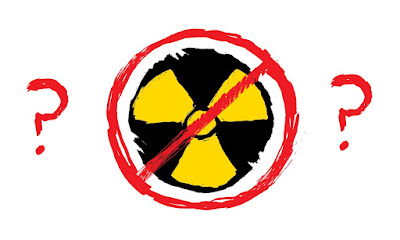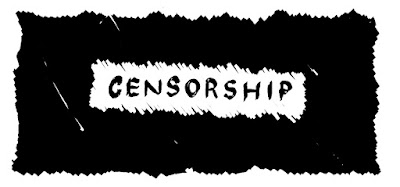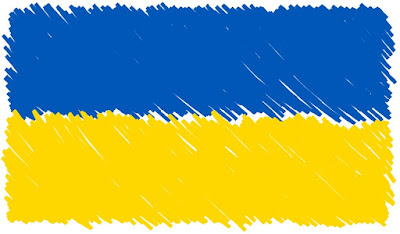Russia has defied Europe on a scale never before seen since the days of Josef Stalin. We are, without question, now moving into a new Cold War. How does Russia justify what the EU has described as "barbaric"?
Russia's national security leadership may have valid reasons to stage a premeditated intervention in Ukraine, but the action is legally dubious, if this means anything anymore. Russian leaders likely foresaw an increasingly heavily-equipped Ukrainian irregular faction such as the neofascist Azov Battalion (Western journalists reject their reported existence as disinformation despite it being a fact), and feared that they may infiltrate Russian territory in future years with their increasing stockpile of NATO-supplied weaponry. Russia chose to nip this threat in the bud with a huge military operation and fully secure its Western frontier against NATO, whose leaders were already labelling Russia as their adversary to be confronted, years before the Russian intervention.
Inaction or vacillation on Russia's part could have been disastrous. NATO weapons were being sent to Ukraine's anti-Russian regime in increasing quantities, curtailing the potential success of Russian military action. With groups like Azov not necessarily following government orders, and accumulating sophisticated equipment and training, it would have been plausible for such people to launch opportunistic terrorist attacks in Russia. We could have seen an unconventional military campaign coordinated secretly by NATO on Russian territory using these irregulars (in concert with foreign-organised protests against the Russian government), to bypass a nuclear standoff while destroying Russia. It is fortunate for Russia that the conflict is taking place inside Ukraine, instead, and that this army of irregulars is being killed off prematurely inside Ukraine.
Ending Nazism again
It is a shame that a lot of anti-Nazis in the West did not notice the return of literal, gun-toting Nazism to Ukraine, with its thousands of armed stormtroopers, and have failed to appreciate Russia destroying Nazism for the second time. Instead, we see convoluted and cerebral claims that Russia is instead somehow analogous to Nazi Germany itself, based on the mere fact that Russia has soldiers and is sending them into combat against those people.
The Ukrainian government is not neo-Nazi, but it wilfully presides over territory filled with them and their weapons, and that makes Ukraine Russia's business.
To Russians: I assure you that some of us in Britain have not been brainwashed by false captions and lies from our government, but we instead still believe in the alliance of 1941-45. We appreciate Russia saving Europe from this Nazi scourge for the second time, and hope for their crushing and prompt defeat.
Russia's lesser evil
The haste with which everything happened, event after event, suggests that Russia had all of it planned or at least was creating contingencies with great enthusiasm (the law of the instrument), and that the recognition of the republics (DPR and LPR) as states is itself just part of a military strategy. The side that has been caught unprepared is Ukraine, which evidently just expected the eight-year war in Donbass to continue its slow creep even despite Western warnings that Russia would attack.
The West made the situation very bad for Ukraine. They seemed to be idiotic in their handling of intelligence by telegraphing their own actions in the press (timelines of equipping Ukraine, types and quantities of missiles, and the fact they were espying the Russian military build-up) to Russia, meanwhile failing to convince Ukraine of the imminent attack it foresaw. These idiots telegraphed how they expected Russia to attack, likely allowing it to adjust its attack plan. Many disbelieved the West, myself included, seeing all kinds of holes in what they were saying, because of their thorough record of lying while quoting intelligence officers, such as in the 2003 Iraq War. It is likely that the only beneficiary of the hysterical coverage was, in the end, the Russian military.
The main moral difference between Russia's intervention and the US and NATO interventions in various countries is that this conflict zone was close to Russia, and many of those suffering in the crisis area were Russian civilians, whether holding Russian citizenship or not. If the US or UK were in a similar position to Russia's position with Donbass, military intervention against the neighbouring country would be treated as righteous. The normal anti-war criticisms, decrying the government for bombing distant countries to capture oil and failing to bring stability, would be muted because the target country is not distant and the goal is clearly not oil. In addition, Ukraine was already highly unstable due to the US action supporting a violent takeover in 2014.
Arming freedom fighters in Ukraine
NATO's policy toward the crisis in Ukraine is erratic and reactive, and Russia has taken the initiative. The most popular view among Western leaders now seems to be to equip the Ukrainians with weapons, similarly to the effort to arm militants in Syria against Bashar al-Assad, which was essentially a failure and is probably less viable in Ukraine. Comparisons are made to the Soviet invasion of Afghanistan, which the US reacted to by arming militants with Stinger missiles over a long period of time. It is doubtful that this comparison holds. The Russian military is not the Soviet military, being now highly specialised in countering insurgents in Syria. Russia likely has no fear of NATO-equipped militants, because it is already facing them in Syria and expects to face them in any case, whether in the Caucasus or elsewhere. From Russia's point of view, defeating such militants is to be pursued eagerly rather than avoiding them.
What is happening in Ukraine is a conventional war that will likely succeed in subjugating the country, if Russia wants to do that. If NATO wanted to preserve a place for Western influence in Ukraine, it would need to send tanks across the border into the western regions of the country immediately, to provide safe haven for those afraid of pro-Russian reprisals in the aftermath of this conflict. However, most likely, they will instead cling to neoconservative fantasies about aiding freedom fighters and repeating the 1980s struggle in Europe.
In a European country, a forced and inapplicable strategy of armed civilian resistance will only claim civilian lives and alienate people. Ukraine is not tribal. Treating it like Afghanistan will only amount to terrorism, prolonging suffering and death among those who want a decent life, ultimately turning the peaceful population against those staging attacks, in revulsion. Afghans are used to war and hardship, but the more important observation is that they have no choice. Even if we literally transferred all the Taliban to Ukraine, they would flee into the EU rather than wage a brutal insurgency. People's predicament in Afghanistan is due to geographic and cultural isolation, and this doesn't apply in Ukraine. Ukrainians won't resist like the Afghans, even under an occupation. Europeans will welcome refugees with open arms, and they won't volunteer to go back and shoot up their own villages or stage car bombings outside schools.
I believe that if the Afghan resistance model failed in Syria, it has no hope of success in Ukraine. However, if it does succeed, that insurgency will spread all over Europe, with car bombs and assassinations becoming a normal form of politics in European capitals, just as the Afghan wars resulted in such regional instability and terror.
The sum of NATO's arrogance and incompetence
What we have is the combined problem of a West that is too arrogant to follow international law consistently, and now this same West is weak and facing defeat in all its foreign policy gambits. To actually be the guarantor of international peace and security, a country has to both follow its own rules and display some success. The US has failed on both counts, spreading misery and violating international law for decades (my own main reason for distrust of the United States foreign policy), and now becoming craven and trying to use third countries to fight dubious battles, now goading pro-Western Ukrainians to get themselves killed.













